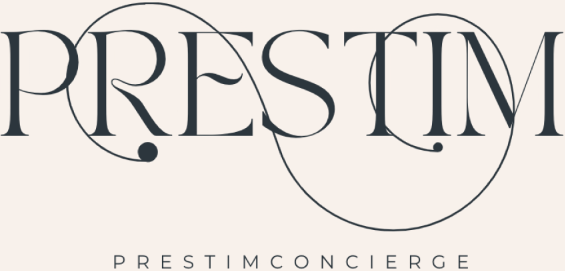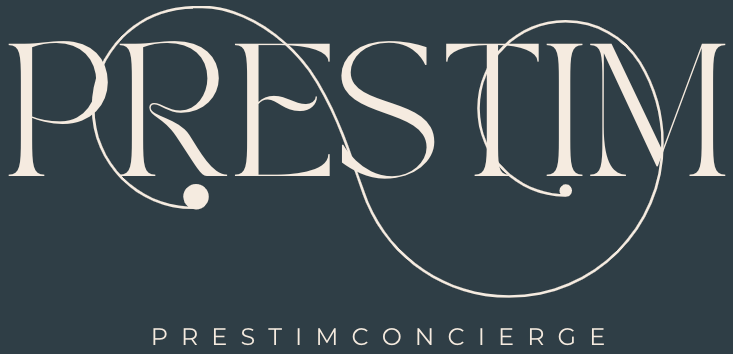Get in touch
555-555-5555
mymail@mailservice.com
The Essential Checklist for Managing a Successful Holiday Property Rental
The holiday rental market has grown significantly in recent years, with travelers increasingly opting for unique, home-like experiences over traditional hotels. Managing a holiday property rental can be a rewarding venture, but success relies on careful planning, attention to detail, and a proactive approach. Whether you’re a seasoned host or just starting out, this essential checklist will help you manage your property efficiently, maximize bookings, and keep your guests happy.
1. Property Preparation
Before listing your property for rental, ensure that it’s fully prepared to meet the needs and expectations of your guests.
- Thorough Cleaning: A clean home is non-negotiable. Ensure every corner is spotless, from bedrooms to bathrooms, and hire professional cleaners if needed.
- Repairs and Maintenance: Fix any outstanding issues such as leaking taps, broken appliances, or faulty lights. Ensure everything is in good working order to avoid any inconvenience to guests.
- Safety First: Install smoke detectors, carbon monoxide detectors, and ensure you have up-to-date fire extinguishers. Leave clear instructions for emergency exits and contacts in case of emergencies.
- Welcoming Décor: Invest in comfortable and aesthetically pleasing furnishings. First impressions matter, and a welcoming atmosphere will set the tone for a positive guest experience.
- Quality Bedding and Towels: Provide high-quality linens, pillows, and towels. Many guests associate this with the overall comfort and luxury of the stay.
2. Setting Up the Perfect Listing
Your property listing is the first interaction potential guests will have with your holiday rental, so make it count.
- High-Quality Photos: Invest in professional photography to showcase your property in the best light. Make sure to include images of key rooms such as the living area, bedrooms, kitchen, and outdoor spaces.
- Detailed Descriptions: Write an engaging, clear, and accurate description of your property. Highlight the key features, including location, proximity to local attractions, amenities, and any unique selling points.
- House Rules and Policies: Clearly communicate your house rules, check-in/check-out times, and any other important guidelines in your listing. This helps set expectations from the outset.
3. Pricing and Booking Strategy
Setting the right price and managing bookings effectively can make or break your holiday rental business.
- Competitive Pricing: Research similar properties in your area to get an idea of market rates. Consider seasonal demand and adjust prices accordingly to stay competitive without underselling.
- Dynamic Pricing: Consider using dynamic pricing tools that automatically adjust rates based on demand, seasonality, and local events. This helps optimize your revenue.
- Minimum Stays: Set minimum stay requirements, especially during peak times. A three-night minimum, for instance, can help you avoid frequent turnover and keep operational costs lower.
- Cancellation Policy: Decide on a clear cancellation policy that works for both you and your guests. Balance between flexibility and protecting your income.
4. Seamless Guest Communication
Excellent communication is key to ensuring guest satisfaction and repeat bookings.
- Prompt Responses: Respond to inquiries quickly. Guests appreciate timely replies and it increases the likelihood of securing bookings.
- Automated Messaging: Use automated tools to send pre-arrival instructions, check-in/check-out details, and any relevant information before your guests arrive.
- Welcome Guide: Provide a comprehensive guide to your property, including instructions for appliances, Wi-Fi passwords, and local recommendations such as restaurants, shops, and tourist attractions.
- Check-in Flexibility: If possible, offer flexible check-in options. Self-check-in through key safes or smart locks can give guests added convenience.
5. Guest Experience and Amenities
To keep your guests coming back, focus on providing an exceptional experience.
- Thoughtful Touches: Leave a small welcome gift such as a bottle of wine, snacks, or a handwritten note. These little details can go a long way in making guests feel valued.
- Fully Equipped Kitchen: Travelers often prefer to cook during their stay. Make sure your kitchen is well-stocked with essentials like cooking utensils, pots and pans, dishware, and basic spices.
- Entertainment Options: Provide various entertainment options like board games, streaming services, and a selection of books or magazines.
- Outdoor Space: If your property has outdoor space, make it inviting with comfortable furniture, a grill, and maybe some string lights to create a cozy atmosphere.
6. Cleaning and Turnover
Quick and efficient property turnover is crucial to managing back-to-back bookings.
- Scheduled Cleanings: Establish a reliable cleaning routine after every guest’s stay. If you’re managing multiple properties, hiring a professional cleaning service will ensure consistent results.
- Inventory Check: After each stay, check for any missing or damaged items and replace them as needed. This keeps your property in tip-top shape for the next guests.
- Restocking Supplies: Make sure to replenish basics like toilet paper, paper towels, soaps, and other essential items. Keeping these fully stocked will avoid complaints and inconveniences for guests.
7. Managing Reviews and Feedback
Positive reviews are vital for long-term success in the holiday rental business.
- Encourage Reviews: After the stay, kindly remind guests to leave a review. Positive reviews can significantly boost your property’s credibility and attractiveness to future guests.
- Respond to Feedback: Whether it’s a five-star review or constructive criticism, respond graciously to all guest feedback. Use negative feedback as an opportunity to improve.
- Continuous Improvement: Stay open to suggestions for improvement. Guests appreciate hosts who listen and adapt to enhance their experience.
8. Legal Considerations and Insurance
Make sure your holiday rental is legally compliant and protected against potential risks.
- Licensing and Permits: Check local regulations to ensure that you have the necessary permits or licenses to operate your holiday rental legally.
- Insurance Coverage: Standard homeowners’ insurance may not cover holiday rentals. Ensure you have appropriate coverage for potential damages, liability, and other risks associated with short-term rentals.
Final thoughts
Managing a holiday property rental requires a combination of preparation, effective communication, and attention to detail. By following this essential checklist, you can create a seamless experience for your guests while ensuring your property remains a successful and profitable venture year-round. Remember, a well-managed property doesn’t just attract guests—it creates memorable stays that lead to glowing reviews and repeat bookings.
PrestimConcierge can help streamline you holiday and vaction property rentals
Using PrestimConcierge hosting services can help hosts maximize their rental income, reduce stress, and provide a high-quality experience for guests, ultimately leading to better reviews and increased bookings.







